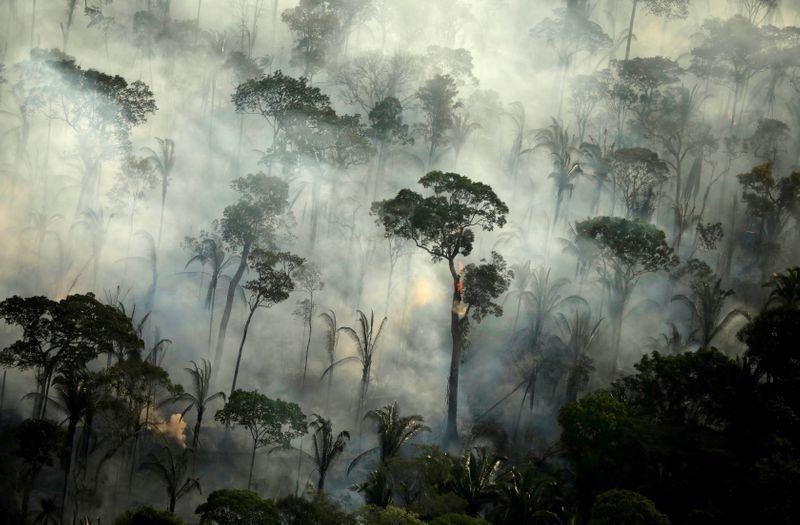Although considered to be the green lung of the Earth, the Amazon Rainforest has been continuously destroyed in recent years by tree cutting, rampant mining, and forest burning to clear land for farming and cattle raising. Many areas have been wiped out, pushing some rare animal and plant species into the danger of extinction.
In the study published in the journal Science, scientists said that the Amazon Rainforest was destroyed much more seriously than previously reported. Accordingly, deforestation in Brazil, which accounts for 60% of the Amazon area, skyrocketed in the 2019-2022 period. In addition, the number of fires caused by human activities and dry weather has also contributed to the shrinking forest area.
Colombian Minister of Environment and Sustainable Development Susana Muhamad said the area of destruction cannot exceed 20% of the rainforest in order to preserve the Amazon Rainforest. Many scientists warn that, if the limit is broken, this valuable asset will not be able to recover and could be transformed into grassland within a few decades. It is worrisome that the rate of deforestation in the Amazon Rainforest has now reached 17%.
Experts affirm that the situation not only poses a challenge to countries in the region, but also to the global fight against climate change. With an area of nearly 7 million km2, spanning the territories of eight countries, the Amazon Rainforest is home to about 1 million indigenous people of 500 different tribes, as well as to more than 3 million species of animals and plants.
According to new research results published in the journal Communications Earth & Environment, Amazon absorbs 26,000 tonnes of air pollutants each year, helping to save about 2 billion USD a year in health care costs for the treatment of respiratory and cardiovascular diseases.
In addition, by absorbing large amounts of CO2 emissions and providing about 20% of the Earth’s oxygen, the world’s largest tropical forest plays an extremely important role in limiting the impact of climate change. US climate envoy John Kerry warned that the world cannot meet the goal of limiting global temperature increase to 1.5C without protecting the Amazon. Meanwhile, the Colombia’s environment Minister stated that the Amazon deforestation towards unrecoverable tipping point will lead to unpredictable consequences for global climate change.
In the face of an urgent call for help from the Amazon, the ACTO Summit provides an opportunity for countries to establish a turning point and reverse the degradation in this tropical forest. Brazilian President Lula da Silva affirmed that forest conservation and security along the border between countries are the main topics of the summit. In addition, ACTO member countries also proposed a project to regenerate about 30 million hectares of forest.
Cost is one of the difficult problems in the effort to revitalise the Amazon Rainforest. Research by the World Resources Institute and the Global Commission on the Economy and Climate shows that Brazil needs to invest about 533 billion USD between now and 2050 to protect the Amazon and turn it into a sustainable economic growth engine.
In that context, the Colombian Government believes that the ACTO Summit offers an opportunity to promote multilateralism in solving problems related to the Amazon, because the existence of forests greatly affects the global climate agenda. In fact, forest conservation has received the attention of many world powers. Since coming to power in early 2023, the government of Brazilian President Lula da Silva has revived the Amazon Fund for Forest Conservation and Climate Protection and continues to lobby world leaders to contribute to efforts to save the forest. The fund has received considerable support from the UK, France, and Germany.
According to the Brazilian Government, thanks to unremitting efforts, the area of the Amazon Rainforest cleared in this country in the first seven months of 2023 decreased by about 43% compared to the same period in 2022. However, experts emphasise that the journey to rescue the Amazon will be long and thorny, requiring the joint efforts and contributions not only of countries in the region but also of the international community.
















